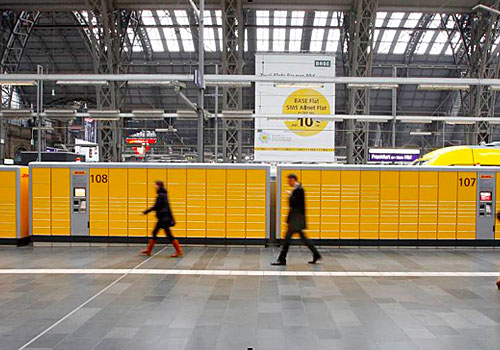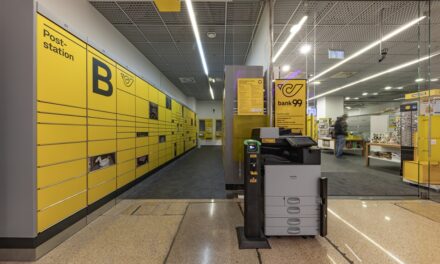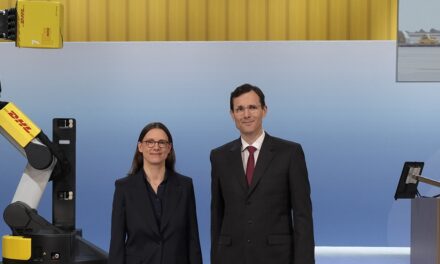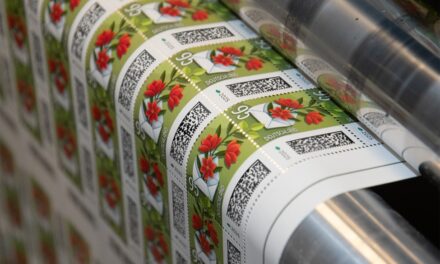
Growing with ecommerce: How DHL’s Packstations are turning modular
Austrian automated parcel terminal manufacturer KEBA explains how Deutsche Post is replacing its Packstations in Germany with the latest generation of modular units. Eleven years have passed since KEBA’s KePol parcel automats commenced their triumphal progress. In the meantime, what was then a highly courageous and innovative initiative of the customer, Deutsche Post DHL, is now taken for granted as being standard.
Today, in many countries of the world parcel collection from a KePol machine is as much a part of the daily round as taking cash from a banking terminal. In Germany, the system is well known under the name “DHL Packstation”.
The e-commerce challenge
In recent years, the parcel logistics market has had to face the issues arising from the steady growth of e-commerce. These are linked to a continuous increase in parcel flows, which also represents a fresh challenge to parcel automats. Quite simply, with only 76 lockers the earlier generation machines installed in the past have reached the limit of their capacity and can no longer cope with current parcel volumes.
Against the background of these market demands, it is easy to understand why last year Deutsche Post DHL started to substitute its older systems for KEBA’s latest parcel technology.
Modularity as customer advantage
Part of the motivation for such replacements emanates from the fact that the KePol/FS-08 modular system is ideally suited to changing needs.
It can offer up to 39 modules with 16 lockers each and as Christian Borger, the head of recipient strategy at DHL Paket Germany explains: “Consequently, the number of lockers at particularly busy locations can once again be raised considerably.”
In addition, the new KePol system also offers complete flexibility with regard to the configuration of the individual modules and can therefore be matched to the respective circumstances at the chosen location. KePol parcel automats can be installed in an L-, U- or straight-line pattern and should interruptions be necessary owing to natural obstructions such as building entrances, an installation with gaps is also possible.
The fact that modularity represents genuine value added is easy to illustrate. For as opposed to the past, when a venue was selected and a parcel station simply installed (where it remained for the future), the possibilities for flexible expansion now available mean that should the parcel volume at the location increase, modules can be added without difficulty and the entire station enlarged.

Part of Germany’s largest parcel terminal, in Frankfurt Central Station
This type of redimensioning may be carried out at any time thus providing customers such as Deutsche Post DHL with maximum investment security for the future.
To date, several hundred of the older systems have been replaced by the new KePol/FS-08 and this process is set to continue in the coming years.
Germany’s largest parcel station
One striking example of the large scale of the “DHL Packstations” can be seen at Frankfurt Central Station, where two, 187-compartment, modular units offering a total of 374 lockers have been in operation since April 2012. This installation has thus surpassed the previously largest system with 327 lockers, which is located in Karlsruhe.
KEBA and KePol
KEBA has the world’s largest installation base with more than 3,000 KePol parcel machines. Owing to ten years of experience in different parts of the world, KEBA possesses profound knowledge and competence with regard to automated postal and logistics solutions for the first and last mile, which makes then company and excellent partner for discussion. In 2011 alone, KEBA installed and commissioned 400 machines, a total unsurpassed by any other competitor.












